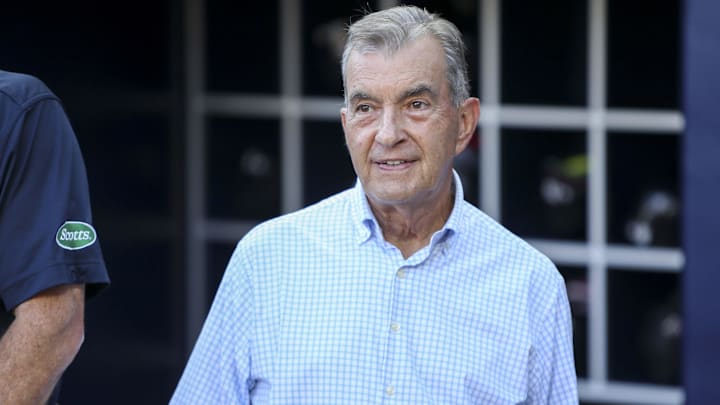When the KC Royals announced recently that Bo Jackson had been selected for the club's Hall of Fame, one of the most common responses was, "How is he not already in?" Jackson's career was brief, cut short by injury, and he was still very much a work in progress when his famous hip injury forced him to hang it up, but his accomplishments over just a few seasons, combined with his legendary impact on the sports world, make him an obvious candidate for such an overdue honor.
But Jackson isn't the only important figure in Royals history who had to wait too long for the honor. Fortunately, two other figures who should have been inducted long ago will join Jackson in Kansas City's Hall this summer — although club executives Cedric Tallis and John Schuerholz never put on a uniform for the Royals, each played pivotal roles in building up the expansion franchise and eventually taking it to the top of the baseball world.
Cedric Tallis laid the groundwork for the most successful era in KC Royals history
Ewing Kauffman hired Tallis to be the initial general manager of his expansion franchise in 1968, giving Tallis his first opportunity to be a GM. But the job wasn't his first go-around with an expansion team: seven years earlier, he broke into major league baseball as the business manager for the newly established Los Angeles Angels.
The first thing Tallis did for Kauffman was assemble a top-notch front office staff, which early on included Schuerholz and Herk Robinson, both of whom later became Royals general managers. Clearly, Tallis knew how to put together talent and develop it.
Tallis' baseball acumen also extended to the playing field. He oversaw the initial operations of Kauffman's beloved Royals Baseball Academy, a groundbreaking endeavor that eventually produced Royals standouts Frank White and U.L. Washington. Tallis drafted franchise cornerstones George Brett, Paul Splittorff, and Dennis Leonard, and engineered trades for other stars including Amos Otis and Hal McRae. Such great players formed the backbone of one of the most successful teams of the late '70s and early '80s.
Unfortunately, Tallis didn't get to see his efforts through. He was replaced by Joe Burke in 1974, and after joining the front office of the New York Yankees, eventually became their general manager, putting him on the other side of the best rivalry of the era, competing directly against the team he'd built in Kansas City.
And Schuerholz?
